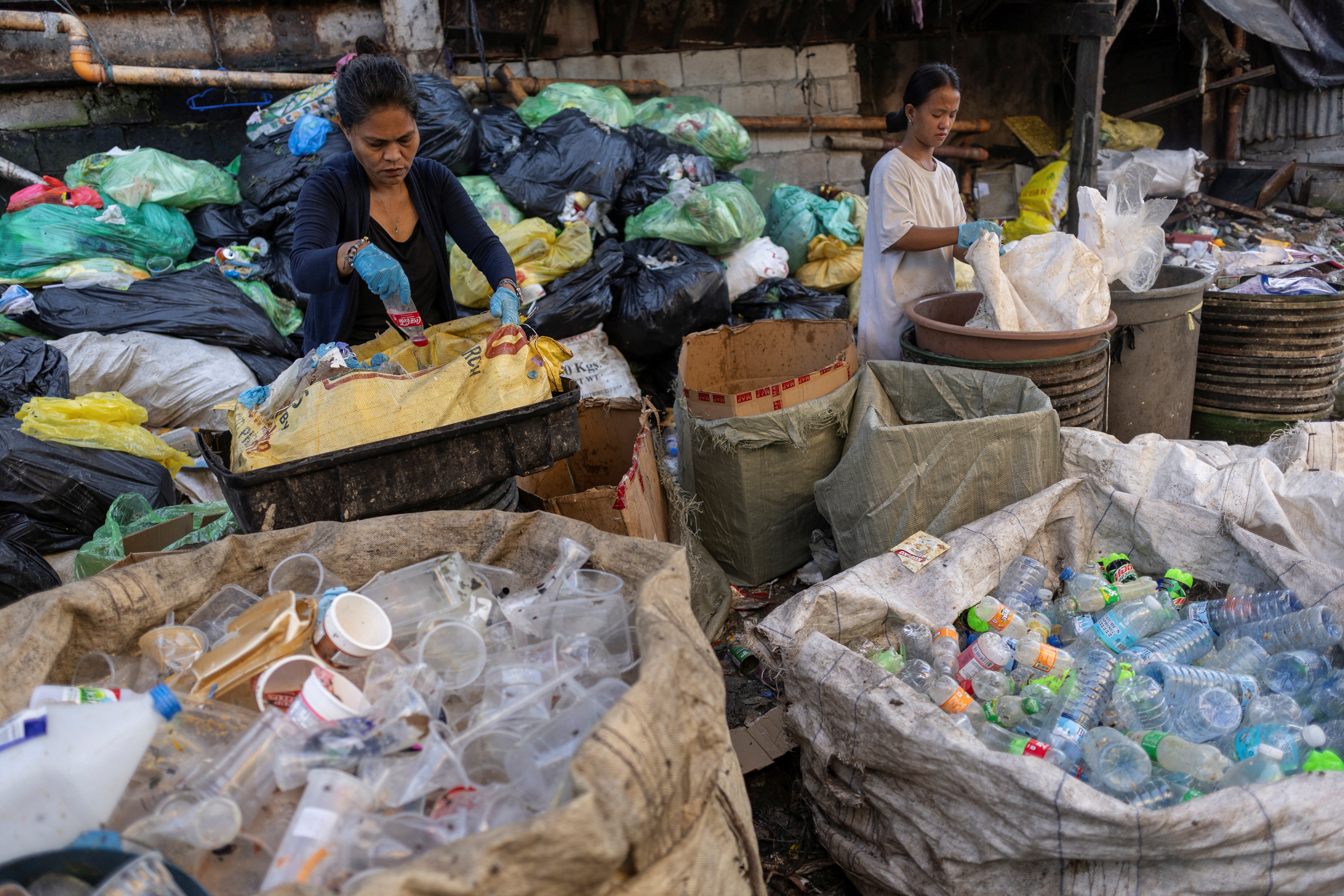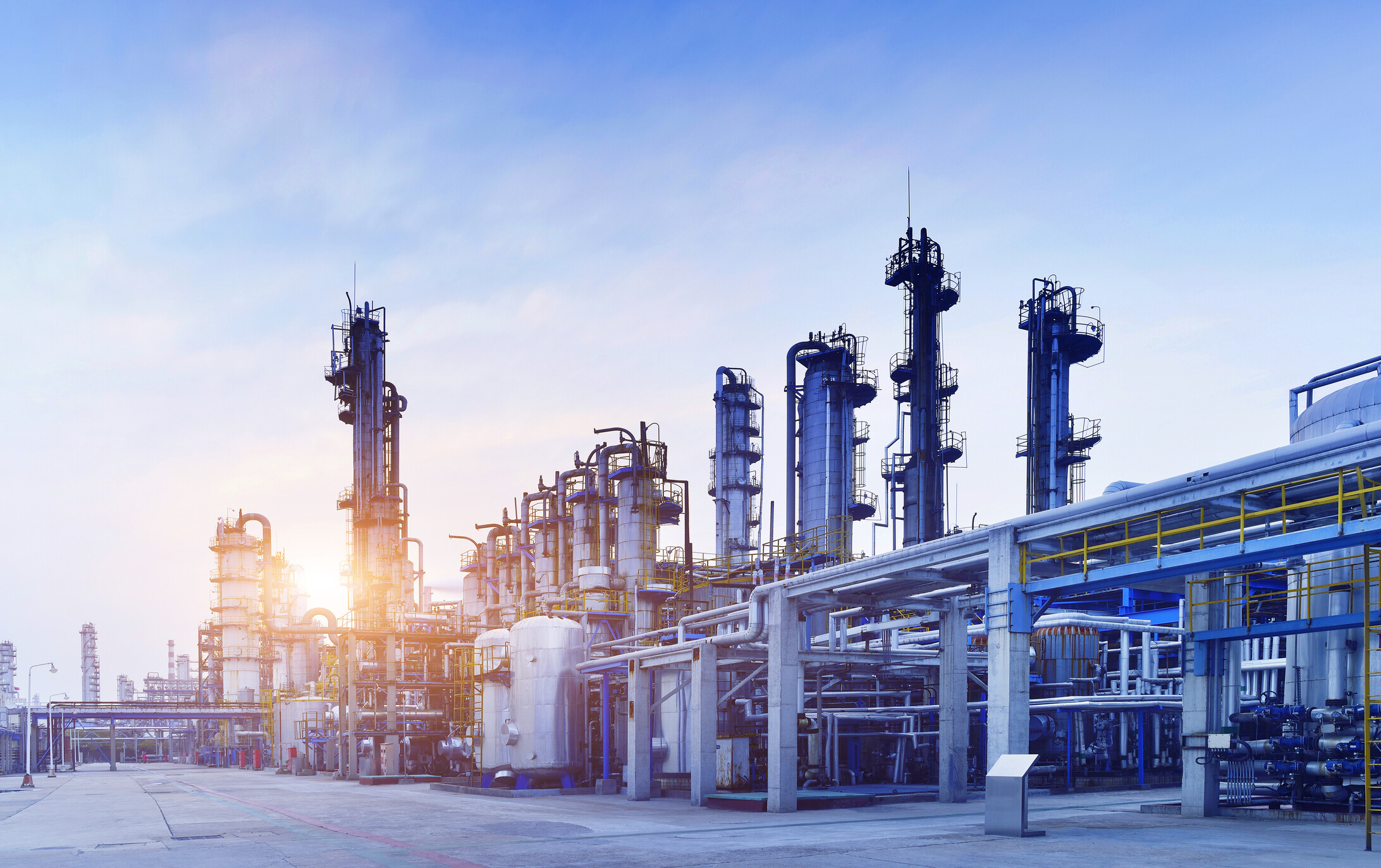Here's how we can eradicate plastic pollution by 2040

A young campaigner persuades a shopper in Jakarta to swap her plastic shopping bag for a reusable one. Image: Global Plastic Action Partnership
- We can reduce the amount of plastic pollution entering our oceans by 80% using existing technology.
- Indonesia has published a new roadmap that aims to end plastic pollution completely by 2040.
- The lessons learned here will be applicable to other countries around the world.
A new analysis published in the journal Science shows that the business-as-usual approach to tackling ocean plastic pollution isn’t working. Even worse, should we continue down the current trajectory, the amount of plastic waste entering the ocean is set to triple by 2040.
But what’s unique about this study is that it focuses on the solutions that can stop this crisis in its tracks. Using all the technology that exists today, we can reduce ocean plastic flows by 80% – and with additional investment channelled into innovation, we can get closer to 100%.
In countries like Indonesia, whose abundant coastlines, rich biodiversity and marine economy are under acute threat from the rise in plastic pollution, action simply cannot afford to wait any longer. That’s why Indonesia has become the first nation to put many of the recommendations from this study into practice.
In April this year, the Indonesia National Plastic Action Partnership – a collaboration between the Government of Indonesia and the World Economic Forum’s Global Plastic Action Partnership – released the Indonesia Multistakeholder Action Plan, a bold roadmap that proposes a path to reduce the amount of plastic leakage into Indonesia’s oceans by 70% by 2025, as well as achieving near-zero plastic pollution by 2040 through transitioning to a circular economy for plastics.
This Action Plan focuses on tangible, tailored solutions that can realistically work for Indonesia, in areas such as increasing waste collection capacity and promoting alternatives to plastics. Its analysis was adapted from the aforementioned study, co-authored by SYSTEMIQ and The Pew Charitable Trusts, while the underlying data was drawn from all over Indonesia. Its recommendations were shaped through close collaboration and consensus-building with leading plastic waste and pollution experts in Indonesia across every sector.
How does this work in practice?
Developing the Multistakeholder Action Plan was an essential first step to creating a joint national strategy, endorsed and supported across the government, industry, civil society and academia. We have now entered the next phase: implementing the system changes proposed in the Action Plan.
First, while action will be driven by the diverse partners of the Indonesia platform, successful implementation requires a central coordination body to ensure that efforts and deliverables across partners are clearly defined, constantly aligned and interconnected. We are proud to partner with the World Resources Institute (WRI) on this front: not only does WRI act as our secretariat’s home base in Jakarta, it also brings decades of deep country experience to co-steering our direction and work plan for the next five years.

Next, to take the solutions in the Action Plan forward and to ensure that our partners are making concrete contributions towards our common goal, we have distributed responsibilities and deliverables to our platform members through the launch of five task forces: policy, financing, innovation, behaviour change and metrics, each consisting of more than members. Here’s a quick overview of what each task force has been up to:
1. Financing: The first task force to launch under the leadership of the Asian Development Bank and the Indonesian Ministry of Finance, this group will soon release a financing roadmap that both assesses current financing gaps and presents potential financing models with key partners that can help finance the systemic changes proposed in the Action Plan.
2. Innovation: This task force has started mapping existing solutions and gaps in innovations needed to achieve the systemic changes that can get Indonesia to its 70% target. We are looking into organizing innovation showcases and pitching events with the help of an extensive global network of experts, technology providers and impact investment partners.
3. Metrics: This task force is moving equally fast with ambitious plans to enhance data collection. We hosted the first meeting in early September, and members have already begun identifying different initiatives that entail collecting data and identifying opportunities for collaboration across the various data platforms, exchanging best practices and practical knowledge on measurement standards at the national level, and ensuring a consistent approach to reporting Indonesia’s progress on eradicating plastic pollution over the next few years.
4. Policy: This group will formally kick off in October. Led by the World Bank Group and the Coordinating Ministry for Maritime Affairs and Investment, it will conduct a deep analysis of existing policies, outline recommendations on policy models that have proven successful in similar contexts and a long-term implementation plan to assist the government and all involved partners towards a policy framework needed to achieve the proposed system changes.
5. Behaviour change: This task force aims to use the visibility of the platform to support and amplify the public awareness and behavioural change campaigns taking place in Indonesia, especially those led by local leaders and advocates.

Transferable lessons
Indonesia is leading the way on addressing the ocean plastic challenge – and it is showing that while it is necessary and crucial to dedicate valuable resources to fighting the COVID-19 crisis, we cannot afford to ignore the long-term challenges that loom in the background.
Parallel action plans are currently under development in Ghana and Viet Nam, two other trailblazing countries that have signed up to collaborate with the Global Plastic Action Partnership and the World Economic Forum to take action on plastic pollution. While every country faces unique challenges, we know that many of the lessons from these three countries can be replicable at a wider scale, from reducing reliance on single-use plastics to boosting recycling infrastructure to keep up with existing levels of plastic waste.
We welcome any organization that is interested in joining our platform to contribute to this crucial sharing of knowledge and resources. Please drop us a note at indonesia@globalplasticaction.org to start a conversation.
Don't miss any update on this topic
Create a free account and access your personalized content collection with our latest publications and analyses.
License and Republishing
World Economic Forum articles may be republished in accordance with the Creative Commons Attribution-NonCommercial-NoDerivatives 4.0 International Public License, and in accordance with our Terms of Use.
The views expressed in this article are those of the author alone and not the World Economic Forum.
Stay up to date:
Plastic Pollution
Forum Stories newsletter
Bringing you weekly curated insights and analysis on the global issues that matter.
More on Circular EconomySee all
Felipe Basso
November 13, 2025







